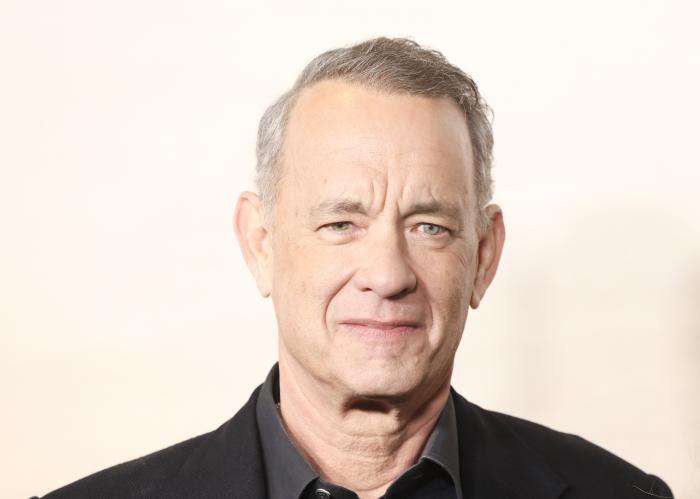

We Need to Talk About Kevin Review: Mamas, Don't Let Your Babies Grow Up
By Brian Prisco | Film | December 8, 2011 |
By Brian Prisco | Film | December 8, 2011 |
The inscription to Nick McDonnell’s Twelve reads “Can we please all stand and have a moment of silence for those students who died? And can we now have a moment of silence for those students who killed them?” The fallout from a tragedy is far reaching, and in the efforts to find someone to blame couched in the cliche of “finding answers,” the general public forgets this. Lynne Ramsay’s We Need to Talk About Kevin, adapted from the novel by Lionel Shriver, explores the aftermath of a school massacre from the point of view of the killer’s mother, Eva Khatchadourian. Told in a fractured, nightmarish narrative that bounds about from the first days of Eva and her husband Franklin’s dating in New York to the hellish wake of Eva’s day-to-day existence as a social pariah, the film gives us no easy answers or convenient scapegoats. It’s a beautiful, horrifying, haunting picture, told so artfully and meticulously, with blistering performances. There are no sympathetic or blameless characters, everyone ends up being in the wrong.
Eva Khatchadourian (Tilda Swinton) is hollowed out when we first see her. She staggers off a couch in someone else’s Led Zepplin T-shirt to get ready for work. Her house and car have been splattered with red paint. A former famous travel writer, she has to beg for a menial position at a travel agency, where the employees stare and point and whisper. When she manages to score the pitiful position, she leaves the agency with a rare smile on her face. And she is promptly punched in the face by an angry mother who tells her to rot in hell. When a passerby offers to call 911, she apologizes and claims everything is alright. If you haven’t figured out by now, everything is not alright.
Part of what makes We Need to Talk About Kevin so effective is what normally destroys most movies: the fluctuating narrative. It’s not made up of massive events — it’s comprised of small moments sprinkled with seemingly innocuous foreshadowing. From behind we see a tiny six year old girl, Celia (Ashley Gerasimovich), singing to herself and eating a bowl of cereal as her father Franklin (John C. Reilly) talks to her about her day. As the camera sweeps around, we see the little girl has an eyepatch over one eye. The father sweeps the giggling little girl around in a dance, calling her his princess, while we see Eva getting ready for her day, and Kevin (Ezra Miller) lurking in the background without a shirt on. The novel itself is epistolary, comprised of letters Eva has written to her husband Franklin. The film treats everything more as a box of family photos that has fallen off a shelf and scattered haphazardly. Later, when we are able to contextualize everything, the sweet scenario takes on so much subtext and horror. Ramsay allows us to spend the film picking up the pieces of this broken life and trying fruitlessly to put them back together in some semblance of a whole. And it is a brutal task.
We are able to get some general overview. Eva used to live in New York as a successful travel writer. When she had Kevin, Franklin, her husband, moved everyone to the suburbs to create some form of an idyllic life. Kevin was a feckless monster, who seemed to do terrible things to his mother out of some sort of sociopathic glee, but was able to turn on the charm for his father and others around him. Eva got fed up and would say spiteful and horrible things to her son, while then trying to be a patient and loving mother — almost complimentary reflected version of Kevin. They have another child much later, almost ten years after the fact. Kevin goes into his high school and murders nine of his classmates with a bow and arrow. He’s captured alive and sent to jail. Now, I’m simplifying things and keeping some of the details back because that’s the joy and sorrow of the film. Nothing is wasted, even the artsy bits come into play later. There’s no resolution or happy ending or answers or tearful confession.
Lynne Ramsay wrote the script along with Rory Kinnear, and with it, she builds a devastating blueprint for her cast. Ezra Miller plays Kevin as a teenager, and he builds on the menace of his character from the forgettable Afterschool. Kevin is a fucking monster, but Miller makes him all the more ghoulish with his arrogant smirking and sneering attitude. John C. Reilly plays the idealist father Franklin so well. As I remarked to a friend, it’s lovable Indie Film Reilly, when he’s at his best. It’s the saccharine yet sour feeling of his Mr. Cellophane. The supporting cast is full of small town folks with razors in their apples. When they reach out a hand to wave at Eva, it’s only to wind up for a slap. When they open their mouths in a smile, it’s only to hock up to spit on her. And all of this is effective only because of Tilda Swinton’s astounding performance. Eva isn’t one note, and a lesser actress would have spent the film going from sad faces to smiling faces as each scene progresses. Swinton’s reactions are much more complex. She is a hollowed husk when left to herself, but she tries to put on a smile. As she runs a grinder against her siding, trying to buff out the red paint splashed on her sad empty apartment, she pauses and waves to a neighbor who is gawking at her. Her emotions are all under the surface, like bloodthirsty predators lurking, ready to explode. You can actually taste the tang of guilt. To be honest, I’ve never been a huge fan of her work, but after this, I’m converted.
If We Need to Talk About Kevin is a fine china plate dropped on the ground and shattered, Ramsay spends her time putting the pieces together not in some pointless effort to restore what once was, but because she doesn’t want anyone to cut themselves on the shards. This easily could have fallen into the mistake of being a message film, but it’s so much more devastating left to it’s own captivating devices. It’s not a gut punch that takes your breath away, but rather the slow draining of oxygen from the room where you suddenly start to feel lightheaded and weak. I hope aspiring filmmakers — and even some of the self-indulgent old hats who’ve been in the game for a while — take a look at what Ramsay has managed with this brilliant film. She pulled off artsy filmschool trickery, a fractured hallucinatory narrative, understated yet devastatingly dramatic performances, and told the tale of a palpable tragedy without any sort of manufactured pathos — and she pulled off every fucking moment. It’s not an easy film, and it certainly won’t leave you feeling uplifted, but it’s a powerful work well constructed.
← Michael Bay's New Victoria's Secret Ad Is Sensual and Strangely ... Understated | 5 Shows After Dark 12/8/11 →
More Like This
'Hundreds of Beavers' Turns the Silent Movie Wackiness Up To Eleven
Review: ‘Greedy People’ Really Wants to be a Coen Brothers Film When it Grows Up
A Box Office Preview of the Deadest Movie Weekend of the Year
Review: Sweet Sticky 'Strange Darling' Is Rom-Com For Psychopaths
Julia Fox Manifested Her Latest Role

Tom Hanks Is Not Trying To Sell You Drugs
Three Trailers: What Happened Before Rosemary's Baby, and Zoe Saldaña In Her Own Skin
Jack White Threatens 'Fascists' In Donald Trump's Campaign With A Lawsuit
Taylor Swift Has a Brittany Mahomes Problem
'The Acolyte's Amandla Stenberg Got Thrown to the Wolves
Christina Aguilera Thinks It’s ‘Corny’ When Celebrities ‘Do Things Intentionally’ to Stay Relevant
Pajiba Love

Taylor Swift Has a Brittany Mahomes Problem
Reviews